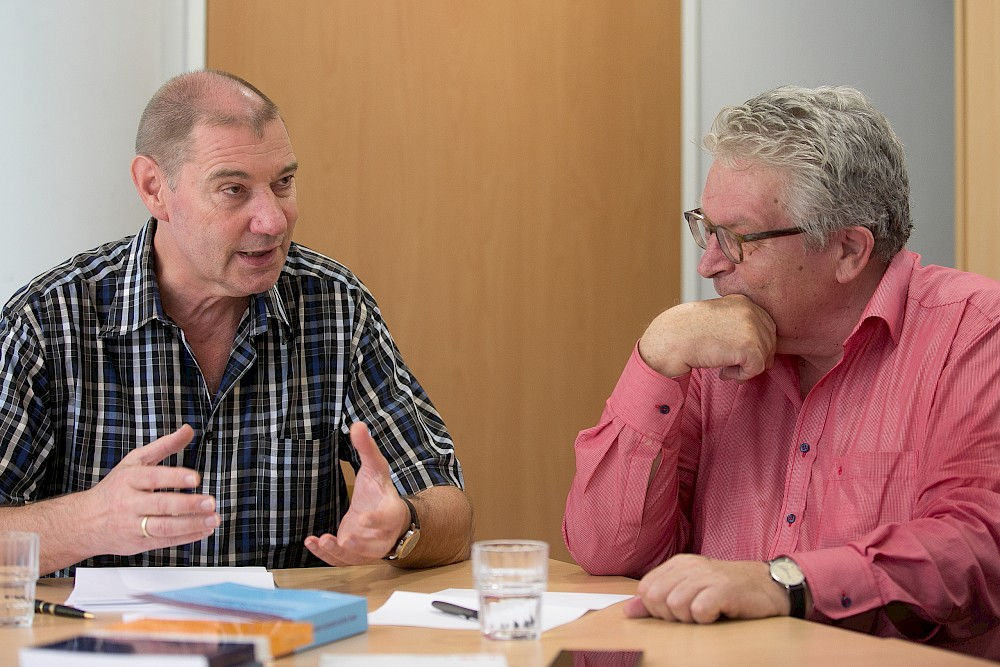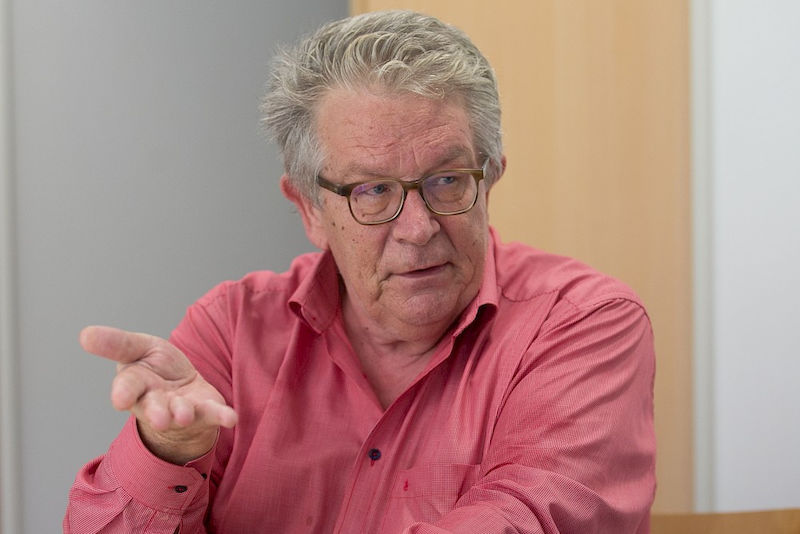"Posh schools" versus "Schools for the poor"

Are there many elite schools in Germany?
Werner Helsper: That depends on how you interpret 'elite'. It is quite an awkward term, especially in an education system context. Historically speaking, hierarchy-based education institutions are certainly not a new concept. However, over the past two decades, there have been new developments on the horizon, for instance when it comes to internationalisation or the establishment of boarding schools for the gifted and talented. The trend towards private schools is also clearly becoming more marked.
Why is the term 'elite" so awkward?
Heinz-Hermann Krüger: In the education sector, the term 'elite' is so dubious because it suggests that schools do not work on the basis of performance but on the basis of social privileges. There are schools that object to the label "higher secondary education establishment for posh people". These schools did not permit us access for research purposes because they assumed that we would go down precisely that road. Schools with a sports focus are a different matter as here, the term 'elite' refers to the achievement of athletic excellence. Using 'elite' in the sense of excellence is certainly not problematic. However, as soon as the term refers to social privileges, the schools have a problem with that.
In your studies, you did not just analyse higher level secondary education institutions or universities. You started at the nursery school stage. Why?
Helsper: Because we wanted to investigate the developments in the area of exclusive education institutions throughout the education system, and also the differences between the various stages. In recent years, nursery school has been 'discovered' as a decisive education environment. Parents tend to ask which education offers a nursery school provides. In expensive commercial nursery schools, such offers are mandatory because the financially better off, extremely mobile parents act like 'customers' and demand certain privileges. However, generally speaking, parents are not yet under too much pressure when choosing a nursery school.
That's totally different by the time we get to primary school...
Krüger: Any railway station book store now stocks a wide choice of guidebooks with titles like "Which primary school is best for my child?" This proves that at this stage, the pressure of choosing the right school for your own child is already becoming stronger. The concept of school districts (“Schulsprengel”) applies in many of Germany's federal states – children have to go to their local school. One well-known strategy used by parents is to stage a fictitious house move so their child can go to another school with a better reputation. On the other hand, the number of privately funded schools is clearly increasing. They do not depend on school districts.
What role do these private schools play?
Helsper: Each new private school – with the exception of private primary schools established as a result of the closure of a government-run school – represents a new opportunity for parents intent on getting the best education for their children to place their child at the school of their choice. For some of the parents, this is certainly a problem: On the one hand, they want the best for their child. However, they also know that they are encouraging social segregation if they send their child to a privileged school and not to the primary school next door.
What's the picture after primary school, when it comes to highest level secondary schools?
Krüger: One general result of education research is that education inequality still very much exists when it comes to the move to the highest level of secondary schools. There are also major differences between urban and rural regions. A highest level secondary school in a rural location has no competitors as the next equivalent school is some distance away. International schools, on the other hand, always need to be accessible from a major city to attract the children of internationally mobile management-level parents. In the eastern part of Germany, this applies to very few cities.
Could you describe one of the urban regions you examined?
Helsper: The major city we chose in the “old Länder”, the federal states that used to be West Germany, has a well-balanced school landscape with approx. 20 highest level secondary schools, an international school, a few comprehensives and a Waldorf school. The perspective of the principals in this area is very interesting: They differentiate their student body along a metropolitan railway train line that roughly divides the city into more privileged and less privileged districts. Students who live on one side of this imaginary line are perceived as not suitable for the highest level of secondary school. Those who live on the other side of this line apparently offer everything principals and teachers dream of. In their opinion, the "student material" is therefore distributed unequally.
Is that also the case in Germany's “new Länder”, the federal states that used to be the GDR?
Helsper: The situation is different: Due to school closures and mergers with other schools, no highest level secondary school has to worry about its continued existence. In return, it seems that they have to compete more for students. Special and private highest level secondary schools have selection procedures in place that are aimed at gaining the best pupils for these demanding schools. In the worst case, other schools then perceive themselves as a "highest level secondary school for the left-overs" or a "highest level secondary school for poor people". This proves how strongly established the hierarchies between the various highest level secondary schools are, even without the official school rankings; the fact that all highest level secondary schools are actually already privileged education institutions, compared to the lower level secondary schools, is totally disregarded.
How do the schools deal with this situation?
Krüger: Internationalisation will become a new quality standard; this applies to the entire education system but above all to the universities and universities of applied science. All secondary and higher education establishments are under increasing pressure to endeavour to offer exchange programmes, partnerships with schools in interesting locations, special educational focuses and language lessons taught by native speakers. The literature refers to this as double internationalisation. One side of this coin could be described as privileged internationalisation. The other side is the kind of internationalisation that should apparently be avoided at all costs, for example schools with a high percentage of children from an immigrant background. For Berlin, there are statistics available for primary schools as well as highest level secondary schools regarding the proportion of students with an immigrant background.
What consequences does this have for the concept of inclusion?
Helsper: The debate on increasing educational equality, which also includes inclusion, is extremely significant. However, in that sense, the schools we are examining don't have much to do with this, as they are inherently exclusive and, if at all, at the most accept children with physical disabilities, as is the case in the Christian highest level secondary schools, for instance. Inclusion tends to be promoted more by those schools that already have to cope with numerous educational challenges due to the nature of their student body, anyway.
So far, we have not mentioned one group at all...
Krüger: The students.
...are the differences between the schools also apparent in the students?
Krüger: Certainly. This is extremely apparent at the exclusive highest level secondary schools. The students there use their school to upgrade themselves and to distance themselves from others even if they are not top-performing. In international schools, there are also internal distinctions: For example between those who represent the internationally mobile clientele and the children of rich German parents who want to give their children a better chance of obtaining an international leaving certificate and the opportunity to study at an international elite university and are willing to pay a lot for this.
In what other ways are these developments apparent?
Helsper: There seems to be a trend towards early segregation: Even at the primary school stage, there are schools with an international, religious or progressive educational focus, for example. The respective highest level secondary schools or also newly established state secondary schools that do not distinguish between the different levels of secondary education on the basis of aptitude recruit their students primarily from these schools and the social groups who choose them.
Which way will the German education system go in future?
Helsper: I am now leaving the territory of sound science by stating: There is a clear trend toward a two-tier education system, as opposed to the current system here in Germany, which is a secondary school education system that is divided into three achievement levels. The lowest level secondary schools will soon be abolished, even those who have so far managed to survive. Students at the next highest level will also eventually be able to go to gain the certificate they need to be accepted for university, a privilege currently enjoyed only by students who successfully graduate from the highest level of the three types of secondary school. This development harbours the chance of more educational equality. However, it can also, as we see in our research, lead to stricter differentiation in the higher education area so that in parallel, new educational hierarchies might develop.
contact: Professor Werner Helsper
Department of School Pedagogy
phone: +49 345 55-23810
e-mail: werner.helsper@paedagogik.uni-halle.de
Professor Heinz-Hermann Krüger
e-mail: heinz-hermann.krueger(at)paedagogik.uni-halle.de
Find more information here.


